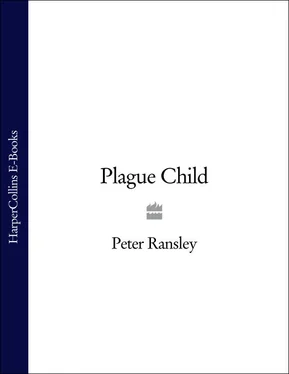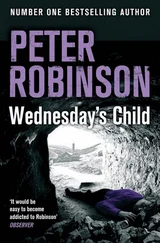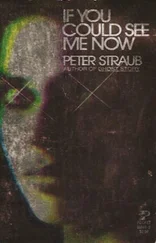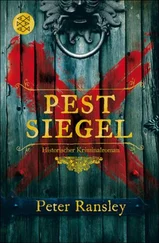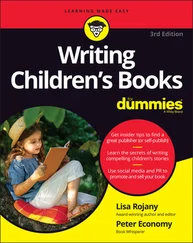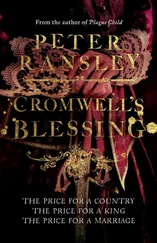1 ...6 7 8 10 11 12 ...22 The whole place was deserted and silent, except for the hovering, cawing ravens. A kite swooped. He was after the rats which came out at night to grow fat in the market. Behind the barn where the hay was stored there was a clatter, like a pail going over. I saw the man’s shadow before I saw him. I scrambled over a stall, and, in sheer terror, vaulted over another, a thing I’d never been able to do before. I heard him curse as he slipped in some cow-clap.
He was two stalls behind. Another stall and I would reach Cloth Fair, and the twisting closes and passages which were home to me, where he would never catch me. I jeered as I prepared to jump down from the last stall. Then the sound stuck in my throat as I saw a glint of metal in front of me. Another man came out of the shadow of the wall, blocking my way to Cloth Fair. It was the man in the beaver hat from the alehouse.
I took out the dagger from my belt, the only weapon an apprentice was allowed to carry. It was next to useless against the sword he had drawn, but he hesitated – not because of the puny dagger, but because of the ditch in the centre of the street in which a dead dog floated, and into which I was retreating.
In those streets you had to sum up a man in an instant. The indigo doublet he wore was splashed from recent meals. His cloak was patched. His face, too, bearded in imitation of his King’s, pouched and veined, had seen better days. But it was the look in his eyes that told me how I might escape him. The look was a mixture of arrogance and aversion that signalled he was what we apprentices called a wall man. In the narrow streets he would, come what may, stick close to the wall, rudely facing-off approaching passers-by, forcing them into the ditch.
I made to come at him, then, as his sword came up, ducked under it and ran through the ditch to the opposite wall. I was right. He would not cross the ditch but slashed from a distance. He cut at me. The blow sliced my hat askew. I staggered but ran on and would have got away but the other man, who had no such aversion for the ditch, grabbed me from behind.
He had a grip like the jaws of a bulldog. The knife fell from my hand.
‘Did you see that, Crow?’ said the other man.
‘Went for you with a knife, sir.’
‘The little wretch insulted me.’
He taunted me, demanding satisfaction, putting the point of the sword close to my eyes then, in a whirl of movement, cutting my belt and pouch away from my waist.
I kicked and struggled but then, I am ashamed to say, I broke down. It was the sight of the papers, lying in my pouch at the edge of the ditch. One sheet was floating in a filthy pool, those precious words, which were going to change the world, shivering and leaking away.
‘Please, please let me go. Take my belt, my pouch, what you like, but let me have my papers!’
Grimacing, the man picked up the pouch floating in the sewer with the point of his sword. ‘Item – one pouch. Pig’s-arse leather. Value?’
Crow grinned. ‘Half a groat.’
I felt the wind from the sword, the point of which grazed my head as he flicked off my hat, spinning it around before dropping it with distaste into his hand.
‘Item – one hat, London Apprentice’s thereof. Slightly damaged.’
‘One farthing.’
‘Half a groat and one farthing!’ he cried in mock amazement, then drew his hand across his throat, which I took to be part of the same jest until he abruptly turned away and Crow grabbed me by the hair and jerked my head back.
I hung like a chicken that has had its neck wrenched, too paralysed with fear to kick or struggle. I heard the clink and slither of a knife being unsheathed. The sound drove me to struggle and kick, trying to twist my neck away as I glimpsed the glint of the knife, but he was far too strong for me and yanked my head further back. There was a sudden flutter of sound in my ears, a blur across the patch of sky.
Crow jumped as a kite rose from his dive near us, a rat squealing briefly between its talons as the life was squeezed out of it. The rat losing its senses made me find mine.
Distracted for a moment, Crow had relaxed his grip, instinctively turning the knife towards the kite. I jerked my head out of his grip and bit his hand so savagely I felt a tooth judder and loosen. He yelled, dropping the knife. The other man was bending to pick up the pouch. He grabbed at me but I head-butted him again and again in a frenzy. He slipped on some cow-clap and fell in the ditch, his shouts choked off as he took a mouthful of it.
I grabbed the pouch with the precious words and ran as I had never run in my life before, almost knocking over the Bellman and the man who should have been watching the barn.
There were cries of ‘stop thief’ from behind me. The Bellman tried to grab me but I pulled away – it is always the apprentice who is guilty – running into the maze of courts, alleys and twisting passageways off Cloth Fair.
Chapter 3
My master’s concern was so entirely bent on the dishevelled pottage of words I unpeeled from my pouch he seemed scarcely to notice the mess I was in.
The cold, God-like fury which I had expected to fall on me fell instead on the task of turning the chaos of smeared sentences into ordered Octavo newssheets. He would have failed his God and Mr Pym (and his purse) if the speech was not circulating round the inns and the taverns where the respectable gathered that week.
Who were Crow and the man in the beaver hat? They were not common cutpurses. Nor were they from the Guild. They had been told I frequented the Pot, and that I had red hair. All I could conclude was that the words I carried really were important, perhaps they would change the world, and they had hunted me and sought to kill me to get them.
My guilt and misery increased as Mr Black struggled to make sense of one ink-stained page after another. At that time we all thought that the end of the world was close – George was convinced the Last Judgement was due in 1666, because, in Revelation, 666 was the number of the first beast to be overthrown. For myself, I thought it had started that night. I had had the words in my hand that would save the world, and I had lost them.
My thoughts grew so crazy I even wished they would beat me rather than ignoring me, until Mr Black came to a page which completely defeated him.
‘Parliament is . . .’ he began. His eyes bulged as he struggled to decipher the words. He flung the sheet from him. ‘Damn the speech! Damn the boy!’ he yelled.
I picked up the sheet, clutching at a word I saw in the dark grey smudge as a drowning man clutches at a spar. The word, in a mess of obliterated ones, was ‘soul’. Other words, miraculously, seemed to form before me in the smear of ink, as I remembered what Mr Ink had declaimed.
‘Parliament is as the soul of the Commonwealth,’ I said.
They stared at me in astonishment, waiting for me to go on, but I could not. The spar was slipping from me and I was about to drown. Then Mr Black snatched the paper back and was able to de cipher the next few words:
‘. . . the Commonwealth that alone is able to understand the . . . the . . .’
Again we came to a dead halt. In desperation I took the sheet from him and stared at the smudged word. I may have deciphered it, but I rather think that, grabbing into my memory, I somehow retrieved it.
‘Diseases!’ I said triumphantly.
Mr Black seized the sheet as again I came to a full stop. The following words were indecipherable, both to his eyes and my memory; but a politician’s phrases and arguments become as familiar as his face, and Mr Black knew Mr Pym’s backwards.
‘Diseases that strike at the heart of the body politic!’ he cried.
No poetry has ever moved me as much as that bedraggled line of political rhetoric, for it was uttered with such a religious fervour, and a look at me that was a second cousin of the look I got from Susannah when she thought that I read the Bible; while, in truth, I was piecing it together from my memory of her readings and her promptings.
Читать дальше
